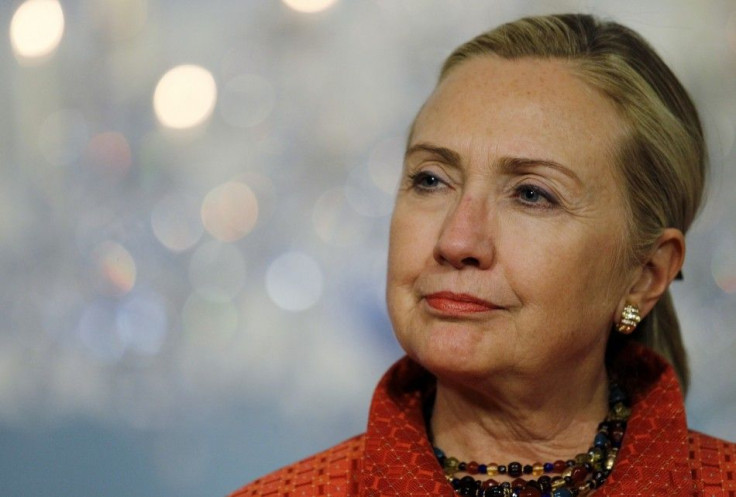U.S., China Discuss South China Sea Dispute; Chinese Media Slams Clinton For Implicit Remarks Against Beijing

The U.S. Secretary of State Hillary Clinton pressed Beijing to honor the ASEAN's code of conduct, formed to resolve the territorial tensions in the South China Sea, during a meeting with the Chinese Foreign Minister Yang Jiechi on the sidelines of the Association of Southeast Asian Nations' (ASEAN) conference in Cambodia, Thursday.
China had earlier warned the ASEAN to avoid discussions on the standoffs in the South China Sea in the meeting between foreign ministers from the 10-member nations and their Chinese counterpart, rebuffing Clinton's call earlier this week to resolve their disputes without coercion, without intimidation, without threats and without conflict.
The United States has no territorial claims there and we do not take sides in disputes about territorial or maritime boundaries, Clinton told foreign ministers gathered in Phnom Penh, as reported by the AP. But we do have an interest in freedom of navigation, the maintenance of peace and stability, respect for international law and unimpeded lawful commerce in the South China Sea.
Asian countries should work collaboratively and diplomatically to resolve disputes without coercion, without intimidation, without threats and without use of force, she said.
The Philippines, which was involved in a dispute with China recently over the ownership of the Scarborough Shoal, has been seeking ASEAN's support in pressurizing Beijing to accept the code of conduct.
Although China, Taiwan, Vietnam and the Philippines have long been involved in the South China Sea dispute, the recent standoff was triggered on April 10 when two Chinese ships thwarted the Philippines's effort to arrest several Chinese fishermen accused of illegally entering and poaching near the Scarborough area.
ASEAN member nations are set to seek China's agreement on the newly adopted set of rules to ensure discipline in the resource-rich region of the South China Sea.
However, disagreements within the member nations were leading to a delay in the final draft of the document before the meeting with Beijing's officials. The ways to deal with Philippines' and Vietnam's disputes with China remained inconclusive, said the U.S. officials.
Meanwhile, a top Chinese daily slammed Clinton for her comments which implicitly criticized the Chinese democracy by praising Mongolia's messy politics as a democratic model for Asia.
Recalling her 1995 visit as the U.S. first lady, Clinton had remarked on Mongolia's successful parliamentary elections in the 22 years since gaining independence from the Soviet Union, as reported by Reuters.
I believe as strongly today as I did then that Mongolia is an inspiration and a model, she said earlier this week on a visit to the Mongolian capital Ulan Bator.
They stand in stark contrast to those governments that continue to resist reforms - that work around the clock to restrict people's access to ideas and information, to imprison them for expressing their views, to usurp the rights of citizens to choose their leaders, to govern without accountability, to corrupt the economic progress of the country and take the riches unto themselves, said Clinton. This remark was widely perceived as a direct dig at Beijing's authoritative governance.
China's ruling Communist Party mouthpiece the People's Daily said Clinton was acting as a preacher for human rights and questioned Washington's right to appraise Asia's democracy.
Who is the United States to haughtily appraise Asia's democratic position? asked the newspaper.
Experience proves that it is those Asian countries which 'draw a tiger with a cat as a model' and mechanically copy the U.S. democratic system which ... lag in development, and even today some of these countries have not recovered, it said.
The newspaper claimed that U.S. had a hidden agenda in pushing democracy in Asia.
In reality, lauding democracy and holding the flag for human rights is an important part of the U.S. 'return to Asia' strategy, it said.
© Copyright IBTimes 2024. All rights reserved.






















